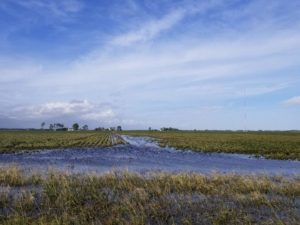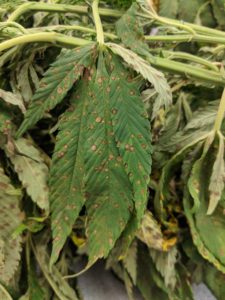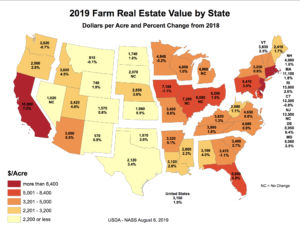Dieback Symptoms in Industrial Hemp
Dieback Symptoms in Hemp Over the last month, dieback symptoms have been widely observed in hemp stands. These symptoms are …



Orange County Center will be closed tomorrow, Thu 06/19/2025 for the holiday.
El inglés es el idioma de control de esta página. En la medida en que haya algún conflicto entre la traducción al inglés y la traducción, el inglés prevalece.
Al hacer clic en el enlace de traducción se activa un servicio de traducción gratuito para convertir la página al español. Al igual que con cualquier traducción por Internet, la conversión no es sensible al contexto y puede que no traduzca el texto en su significado original. NC State Extension no garantiza la exactitud del texto traducido. Por favor, tenga en cuenta que algunas aplicaciones y/o servicios pueden no funcionar como se espera cuando se traducen.
Inglês é o idioma de controle desta página. Na medida que haja algum conflito entre o texto original em Inglês e a tradução, o Inglês prevalece.
Ao clicar no link de tradução, um serviço gratuito de tradução será ativado para converter a página para o Português. Como em qualquer tradução pela internet, a conversão não é sensivel ao contexto e pode não ocorrer a tradução para o significado orginal. O serviço de Extensão da Carolina do Norte (NC State Extension) não garante a exatidão do texto traduzido. Por favor, observe que algumas funções ou serviços podem não funcionar como esperado após a tradução.
English is the controlling language of this page. To the extent there is any conflict between the English text and the translation, English controls.
Clicking on the translation link activates a free translation service to convert the page to Spanish. As with any Internet translation, the conversion is not context-sensitive and may not translate the text to its original meaning. NC State Extension does not guarantee the accuracy of the translated text. Please note that some applications and/or services may not function as expected when translated.
Collapse ▲Dieback Symptoms in Hemp Over the last month, dieback symptoms have been widely observed in hemp stands. These symptoms are …

Kudzu bugs have been a no-show since 2013, but are widespread at low levels this year. A lot of …

DRAFT Soybean Producers Guide to Preparing for and Recovering from Hurricanes in North Carolina and Virginia This is a draft of …

DRAFT Flue-Cured Tobacco Producers Guide to Preparing for and Recovering from Hurricanes in the Southeastern U.S. This is a draft …
N.C. Department of Agriculture & Consumer Services is now taking applications for this year’s Organic Cost Share program. The …

The National Young Farmers Coalition and Hickory Nut Gap Farm present a Young Farmers Mixer at HNG Farm Thursday, …
Do: Scout your crop. Identification is the first step so you know what you’re dealing with. The second step …
R. Brandenburg, D.D. Reisig, and T.L. Billeisen, Entomology and Plant Pathology Insects pests of pastures and forage crops are often …
Falling Number and %Protein values are now available for each variety in the 2018-19 Commercial Wheat OVT at the …
Falling number is a relative measure of the enzymatic activity in a living wheat seed following harvest, specifically alpha-amylase …

Hemp Leaf Spot Problems North Carolina industrial hemp producers are combatting a leaf spot issue that is caused by Exserohilum …

Root, Crown, and Stem Rot Root, crown, and stem rots are being observed in industrial hemp stands across North Carolina. …

The recent National Agricultural Statistics Service (NASS) posted the results of its early June survey on various categories of …
We are thrilled to announce the publication of the North Carolina Organic Commodities Production Guide! We’ve added new chapters …

We have a number of effective insecticides for corn earworm in North Carolina soybeans. One of these is the …
The background data for the 2019 Small Grains OVT tests are now live. You can find them under Small …
The data from our 2018-19 NC OVT Small Grains trials are now available. You can find this data under …

Our county Extension agents have several excellent field days planned for this summer. There will be a diversity of …
The NC Soybean Yield Contest categories have changed from previous years for the 2019 Soybean Yield Contest and moving …

Corn is susceptible to damage at three stages (roughly): V1 to V6, V14 to VT, and R1 to R4. …

This factsheet offers information on target spot in soybean production in North Carolina.

This factsheet offers information on the signs, disease cycle, and management of soybean vein necrosis …

Frogeye leaf spot (FLS) of soybean is a common foliar disease in North Carolina with …

Soybean mosaic virus (SMV) is one of the most prevalent and destructive viral pathogens of …
This soybean disease factsheet discusses various fungi that cause seed decay and pod blight of …

This soybean disease factsheet covers anthracnose, a fungal disease affecting maturing soybean stems and pods …

This factsheet examines the symptoms and management of Southern blight in soybean production in North …
This factsheet covers the signs, symptoms, and management of red crown rot, a problem in …